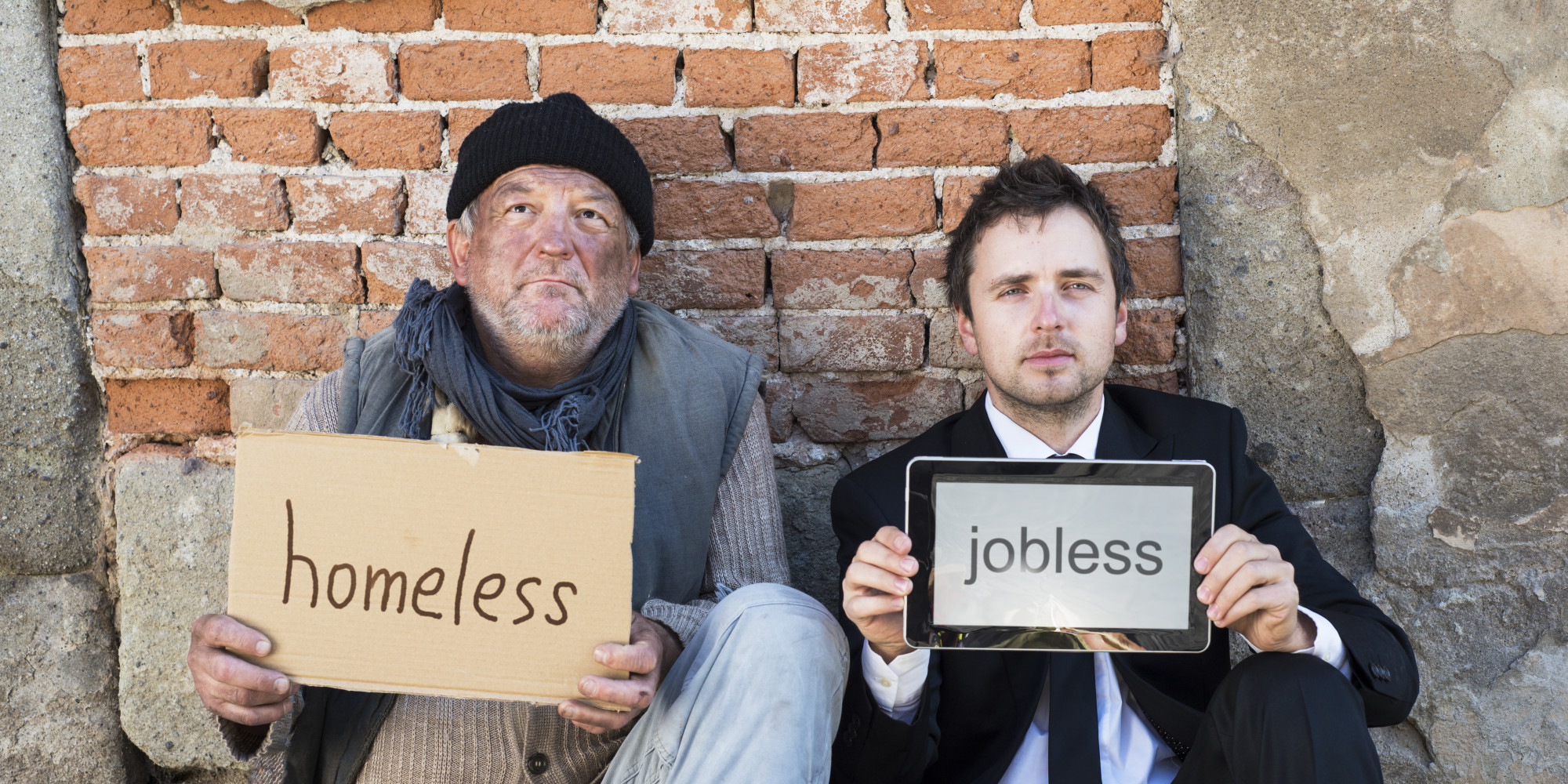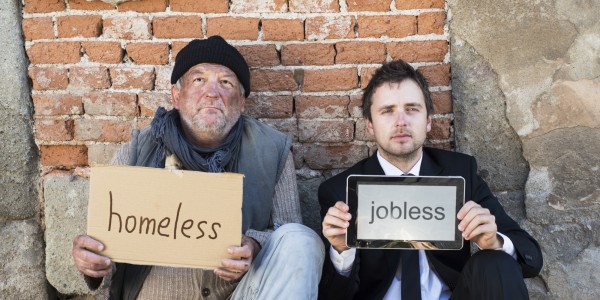Phil Chitty is puzzled. In his letter to The NZ Herald (Dec 27), he writes of seeing poor children scavenging for food in piles of rubbish in Bangladesh and asks the same question that has been on many people’s minds: how can so many of our Kiwi children be classified as poor when they clearly don’t suffer the same levels of deprivation as kids in the developing countries.
Jamie Whyte, former leader of the Act Party, in his comment for The New Zealand Herald (Jan 7) writes: “ There is no poverty in New Zealand, Misery, depravity, hopelessness, yes; but no poverty….”
We know, nationally, requests for basic food parcel aid has gone up by seven per cent. Government’s own figures show that 8% of our children live in “severe deprivation” based on measures such as inability to live in a warm house, inability to avoid rent and utility arrears, or replace worn out clothes.
Let’s not forget that if it was not for organisations like Salvation Army, Food Bank and City Mission, we could very well see more people scavenging for food in rubbish bins than we see now (yes, it happens even here).
Although extreme poverty is real and exists in New Zealand, it is true that not all children classified as “poor” (nearly one in every 3) necessarily suffer from the same levels of deprivation seen in the developing countries such as Bangladesh.
In New Zealand, as in most developed countries, poverty is measured relative to 60% of the weekly median income. The question remains: why measuring relative poverty matters when it does not necessarily relate to hardship the way absolute poverty does.
The answer is that, unlike in the developing countries, the main driver of social dysfunction in the developed countries, is the level of inequality within the society, not the economic growth.
Measuring relative poverty matters because it gives an indication of the inequality that exists within the society.
British social epidemiologist, Richard Wilkinson, writes: “As we looked at the data, it became clear that, as well as health and violence, almost all the problems that are more common at the bottom of the social ladder are more common in more unequal societies”.
Wilkinson’s data analysis showed that regardless of how rich a country is, more unequal societies produce lower scores across all important social indexes such as: life expectancy, children wellbeing, obesity, mental illnesses (including drug and alcohol addiction), involvement in community life, levels of trust (believing that most people can be trusted), imprisonment (proportion of population in prison), teenage births, homicide, child mortality rates, and social mobility.
The interesting finding is that, in rich market driven countries, there is no correlation between GDP per capita and any of the factors above.
It appears that, general social dysfunction is closely linked with inequality within the society; and it is not just the poor that are affected by it.
At each level in social hierarchy, from education to general health, there seem to be benefits in living in a more equal society. But why is that?
Wilkinson believes that the reason lies in the psychosocial effects of inequality.
Feelings of superiority and inferiority, dominance and subordination, valued and devalued, respected and disrespected are all closely linked with our social status and where we perceive ourselves in relation to others.
Capitalism has manufactured a consumerist society through encouraging status competition that, in turn, creates status insecurity.
Our sense of self-worth and self-esteem is closely linked with our social status.
Social media, such as Facebook and Instagram, put us at more competition with each other than ever before.
We worry about how we are judged and perceived by others. We stress about how attractive, thin, clever, fit, healthy, young or successful we appear.
The affects of chronic stress from social sources, on cardiovascular disease and lowering immunity systems, are well researched. This explains the link between poor health outcome and inequality across the social hierarchy.
Research has also shown that antisocial behaviour in children, which sometimes becomes irreversibly embedded in their personality as they grow up, is a psychological barrier to feelings of exclusion and inferiority that is more prominent in unequal societies. This is why more inequality leads to more violence.
New Zealand has one the fastest rates of growing income inequality amongst the OCED countries. That makes us all vulnerable because growing levels of inequality threatens to destroy the social fabrics of our society.
On Christmas day we woke up to find that all 4 wheels of my in-laws’ car were missing. The car apparently had low profile tyres making them more desirable.
I couldn’t be sure, of course, but the chances are that it was not absolute poverty that motivated this crime, but an industry that thrives on the appetite of its consumers for higher social status.
Neoliberal values have manufactured a false paradigm that links material possession and wealth to higher social status.
Mass tagging of fences, acts of mindless vandalism, violence and, many other anti-social behaviour, are all expressions of social ills that are rooted in inequality.
Even, the rising levels of terrorism, in the West and elsewhere, can be traced back to feelings of disfranchisement and low self-esteem that are prevalent in unequal societies.
Inequality, because of its link with increased consumerism, also affects our environment and the fight against climate change.
So what can be done to close the income gap and create a more equal society?
Many would argue that it is individual bad decision-making that leads to poor social outcomes.
Whilst it is true that plenty of people are able to achieve social mobility through positive decision-making, experts tell us that, human beings have deep-seated psychological responses to inequality and social hierarchy that greatly influence our self-esteem and the way we interact with and treat each other.
It is therefore, our policy makers’ bad decision-making that fails to reduce the differences between our incomes that leads to poor social outcomes for us all.
We can ensure more people fall above the threshold of relative poverty by transferring income from the very high end of the income scale to the lower end through a range of policies like progressive taxation, stopping tax avoidance, and tax credits for the rich, limiting executives’ obscene salaries and bonuses etc.
The sad sight of my in-laws’ humble car, resting at an angle on a plank of wood without its wheels on Christmas day, is a sobering reminder of our increasingly divided society where we care less for each other.
If we don’t want to end up living behind gated houses and are serious about tackling poverty, we need to push our Government to priorities tackling inequality above achieving artificial budget surpluses and economic growth.







Exactly so Donna !
With crime down 30% since National took over, it seems their policies are working just fine.
They, like me, think that throwing money at dysfunctional groups just panders to them rather than actually fixing the problem.
So lying is a policy now?
Are those the dodgy crime statistics that came to light after the change of Minister of Police, Andrew?
Ha ha. Andrew i see your still a wanker. 30 % you say. Back that National Facist Party propaganda release up with some facts please. Knob!
Two derogatory name calls in one post. Does your argument and your credibility no good Pedro.
If you want anyone to take your point seriously, play the ball, not the player.
30% !!! Not sure where your data is from, but the following is from a frustrated retiring cop (source:http://www.stuff.co.nz/national/crime/8549984/Patience-wears-thin-in-police-force)
“Coward said a drop in the crime rate was not as it appeared.
“It’s not the drop that they think it is because it’s a drop in reported crime, it is not a drop in crime.”
He said many victims of crime were no longer reporting it because of the process they had to go through.
“I think it’s because of these new systems that they’ve put in place, the crime reporting line, people think ‘oh I can’t be bothered with this’.””
All crime, reported and unreported, has fallen 30% since 2008. Police figures give reported crime. The 30% figure comes from the NZ Crime and Safety Survey (NZCASS), the best source of data on unreported crime. The Police data and NZCASS show the same trend. Extensive detailed breakdowns of figures by incident type are available in the published report on the Ministry of Justice website. The report does not explore reasons for the impressive fall in crime rates. It however interesting to note that crime rates are falling sharply in many other developed nations. In the US “violent victimisation” is down about 70% since the mid 90s. Murder rates and gun crimes are also falling, and this continued through the recent recession. Among a range of possible explanations (including removal of lead from paint and petrol, and improved access to abortion) the most plausible is generational. The members of age groups that commit most crime show falls in rates of risky behaviours, including risky driving and all drug taking except marijuana. They have enjoyed enhanced social connectedness through the Internet, and they have often been to schools with much lower tolerance for school fighting and bullying than previously.
You attributed a 30% drop over 8 years (as the last NZCASS report was 2006) to shifting demographics. Ignoring that demographic shifts DON’T HAPPEN THAT FAST. And did so in the face of an article making a case that the government is cooking the books.
Andrew, you prefer an absolute measure of poverty to be used in NZ?
Andrew, if you look closely at National policy you will find they do use relative measures of poverty. In fact you will find a general consensus between all parties that absolute measures are nothing but absolutely inadequate.
The Herald and Jamie Whyte have been crying over spilt milk, we left absolute measures behind decades ago. lol
“With crime down 30% since National took over”
Oh really, Andrew?
And yet our prisons have more prisoners than ever?
And Police have been found doctoring crime stats?
You really are a sycophant for your masters, aren’t you??
When you get a benefit and 60 percent of the total you get paid by WINZ goes into a landlord’s pocket, the rest not being enough for paying all basic living cost bills (power, water, phone), and persons having insufficient to buy new clothes, then in NZ you must surely be poor.
That is just one example, one which many single on benefits face, those sick and disabled, those without work, yet we have too many brainwashed to think, they are “bludgers” and have it too easy and too good.
Poverty in NZ is REAL, there is no doubt about it, I see it every day, where Auckland is more divided than it has been for decades, along income lines, ethnic and cultural backgrounds, and other aspects.
Those ridiculing or questioning the reality, that relative poverty exists, they deserve to swap with the poorest we have, for a year or more, to grasp what it means.
Never a truer word said.
Just ask any young person ( under 25) with a disablity on the lowest winz rate, getting daily abuse from winz or being pushed into a minimum wage job, when in actual fact they aren’t even fit to work ( because they spend more time off work or in hospital than they do at work , because of multiple issues and they are also happen to be in a defacto relationship, which invalidates any income from winz .
Or there total income ( $300) goes on a sleepout, with no running water leaving them with no money for food and one of the couple suffers diabetes type 1 and complications from it.
All the above is happening to a young 23 year old friend of mine and his fiancee in hastings.
Yes 30%!
Fantastic news eh?
http://www.stuff.co.nz/national/crime/72777492/crime-statistics-show-30-per-cent-drop-since-2008
Here’s the actual report:
http://www.justice.govt.nz/publications/global-publications/n/new-zealand-crime-and-safety-survey-2014/publications/global-publications/n/new-zealand-crime-and-safety-survey-2014/documents/nzcass-main-findings-report
Have a nice day 😉
What are you on about, you are only telling half the story, and statistics have been “glossed up” under this government, as media reports told us:
“Police made burglaries vanish”
http://www.nzherald.co.nz/nz/news/article.cfm?c_id=1&objectid=11292579
Also for a few years there has been more use of alternative justice approaches, such as this – ‘Diversion’:
http://www.cab.org.nz/vat/gl/le/Pages/Diversion.aspx
And in more detail this:
http://www.justice.govt.nz/courts/youth/publications-and-media/speeches/alternative-approaches-to-sentencing
Under ‘V Alternatives to Imprisonment from the New Zealand Youth Justice System’ it says this:
“The vast majority of youth offending in New Zealand is dealt with through Police diversion. About 76% of youth offending does not come to Youth Court and instead the young person receives a warning,[44] formal Police caution,[45] or community based “alternative action”.
Police deal with 44% of cases of youth offending by issuing a formal warning, then releasing the young person. This is in keeping with the principle that young offenders should be diverted from the formal justice system wherever possible.[46] It also reflects the relatively minor nature of most youth offending.”
As for crime in general, it has gone down in many countries, but antisocial behaviour is still a problem that is common, for various reasons. And despite of the above, New Zealand still has one of the highest imprisonment rates in the developing world! What does that tell us?
For the rest: This post is about poverty, and not primarily about crime and statistics on it, so perhaps get back on topic.
You’re not paying attention Mike. Try reading Barry’s post again.
The statistics I have referred to are not police statistics. They are from an independent NZ Crime and Safety Survey, sponsored by the Justice Department.
This is National succeeding where the previous Labour government sat on its hands and allowed criminals a free rein.
If we take this and their recent pandering to violent criminals being deported from Australia into account, you’ve just got to wonder whose side Labour is on!
Survey? Ah, one of those, where they ring up all those land line holding elderly National Party voters, in Remmers and on the North Shore and so, to hear the “good news” about the “brighter future”.
Mike, once again, you’re still not paying attention.
If you read report I linked you will find the methodology on page 10.
“Sponsored by the justice department” says it all.
Anyone who believes that crime rates are down with the amount of inequality and poverty about, is a fucking idiot.
Lol. Well played
Andrew, you are a muppet.
I TELL YOU WHAT REAL POVERTY IS ABOUT, IT IS NOT JUST POVERTY, IT IS MUCH WORSE, AND INCLUDES WAR AND VIOLENCE:
https://www.youtube.com/watch?v=FQESRt9Jz_U
And war is a horror, see this:
https://www.youtube.com/watch?v=jTGcHPlmXFI
Those are just moments of observation, and more is to come.
http://geopolitics.co/2016/01/16/europeans-getting-ready-for-national-basic-income/
Comments are closed.